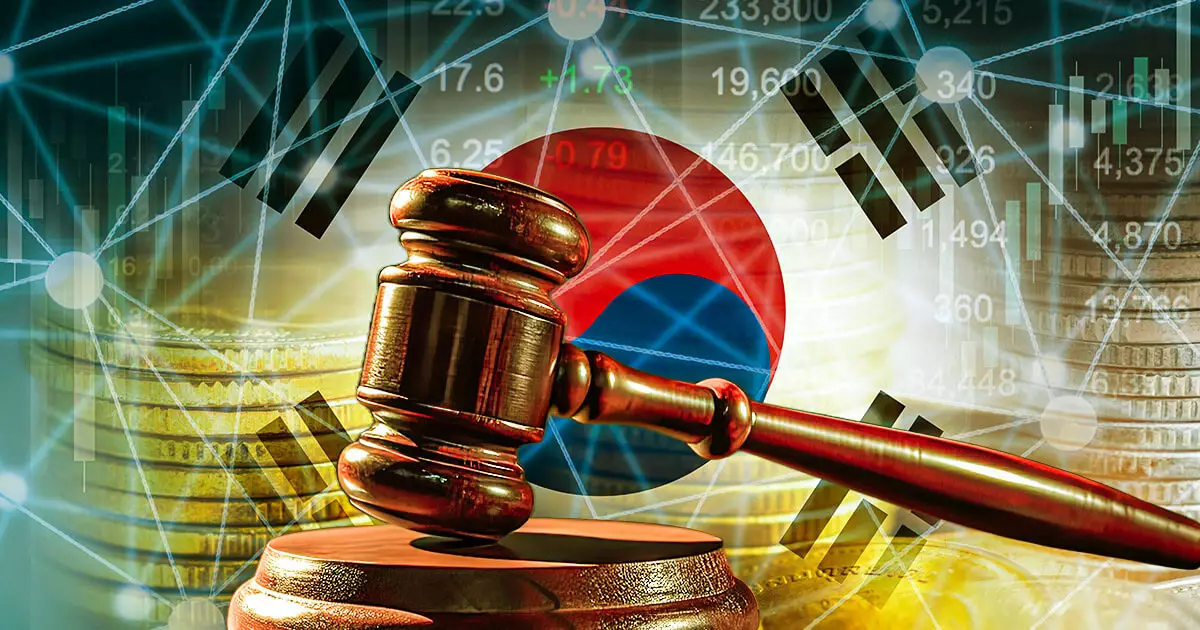The South Korean National Assembly recently passed the Virtual Asset User Protection Act, a comprehensive piece of legislation that aims to regulate the cryptocurrency industry in the country. The act combines 19 different bills related to cryptocurrencies and focuses primarily on investor protection. The move comes in response to a series of crypto-related scandals that have rocked South Korea in the past year.
Ensuring Investor Protection
One of the main objectives of the Virtual Asset User Protection Act is to establish a regulatory framework for the cryptocurrency industry and define digital assets that are considered securities. The legislation introduces rules to prevent and punish illicit financial activities, market manipulation, and insider trading using nonpublic information. Transgressors will face fines proportional to their profits from unfair trade practices and may also receive prison sentences of at least one year.
Bringing Crypto Firms Under Regulatory Oversight
In addition to investor protection, the legislation also aims to bring crypto-related companies under the supervision of the country’s financial services regulatory bodies. This includes the imposition of minimum capital requirements in the form of reserve funds and insurance for customer deposits. Furthermore, the legislation mandates that these firms keep records of all virtual assets in their custody. The Financial Services Commission and the central bank of South Korea will be granted powers to supervise and investigate crypto platforms and companies.
Challenges and Criticisms
While the new rules are seen as a positive step towards regulating the cryptocurrency industry, some experts argue that applying rules designed for traditional finance to digital assets may not be the most appropriate approach. Lee Suh Ryoung, the chief secretary general of the Korea Blockchain Enterprise Promotion Association, suggests that a more tailored regulatory framework should be created for cryptocurrencies.
Addressing Public Backlash
The introduction of the Virtual Asset User Protection Act is expected to alleviate some of the public backlash that the South Korean government has faced in recent months. The collapse of Terra LUNA, which prosecutors claim to be the largest financial fraud ever committed in the country, has further highlighted the need for stricter regulations in the crypto industry. South Korea has also been plagued by other scandals involving market manipulation and conflicts of interest related to cryptocurrencies.
In May, Coinone executives were indicted over allegations of market manipulation and paid listing of tokens. Additionally, a high-profile lawmaker’s crypto holdings were investigated due to allegations of conflict of interest, revealing a substantial amount of a now de-listed cryptocurrency called WEMIX. The investigation into this matter is still ongoing.
The passing of the Virtual Asset User Protection Act by the South Korean National Assembly marks a significant step towards regulating the cryptocurrency industry in the country. The legislation aims to protect investors, establish a regulatory framework, and bring crypto-related companies under the oversight of financial services regulatory bodies. While there are criticisms regarding the suitability of traditional finance rules for digital assets, it is clear that stricter regulations are necessary to prevent fraud and market manipulation in the crypto industry.

